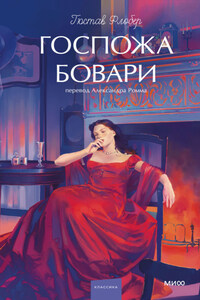Chapter One
I’d Choose to be a Queen
The time was the height of the London season for 1875; the height of that gay time when the parks, and streets, and shops are full, when pleasure-promoters are busy keeping up a fresh supply of every form of entertainment, when pleasure-seekers are flocking to the garden parties, and strawberry parties, the operas, and theatres, and all other amusements provided for them; when the world – the world at least of Regent Street, and Piccadilly, of Eaton Square, and all Belgravia – looks so rich and prosperous, so full of life and all that makes life enjoyable.
It was that gay time when no one thinks of gloom, when ambitious men dream of fame, and vain women of vanity, when the thoughtless think less than any other time, and when money seems to be the one god that rules in every breast.
This was the time in the merry month of May, when one afternoon, at the hour when Regent Street is brightest and fullest, a little ragged urchin of about ten pushed his way boldly through the crowd of carriages and people surrounding Swan and Edgar’s, and began staring eagerly and fearlessly in at the windows.
He was the only ragged child, the only representative of poverty, within sight, and he looked singularly out of place, quite a little shadow in the midst of the splendid carriages, and brilliant and prosperous men and women.
The few who noticed him wondered languidly what brought him there, why he intruded his disreputable little person in the midst of scenes and people with which he never had, and never could have, anything in common.
The little fellow seemed to guess the thoughts which a few in the crowd favoured him with, and in his own way to resent them. In and out among the rich and fashionable people his small head kept bobbing, his agile body kept pushing.
He avoided the police, he escaped unhurt from under the impatient horses’ legs, he was never stationary, and yet he was always there. He pressed his dirty little form against more than one fine lady’s dress, and received more than one sharp reprimand, and sharper tap on the head, from the powdered and liveried footmen.
Still he held his ground and remained faithful to Swan and Edgar’s. He was a dirty, troublesome little imp, but on his worn and prematurely old face might have been seen a curious, bright expression. Those who looked at him might have pronounced him hungry, certainly poor, but, for the time being, not at all unhappy.
Round and round the splendid establishment he dodged rather than walked, examining with a critical eye the mantles and costumes on view in the windows; then he carefully looked over and reckoned the carriages, gazed up with a full, bright, impudent stare into the face of more than one proud and titled dame, and at last, apparently satisfied, turned his back on the gay shop and gay crowd, and set off down Regent Street at a swinging pace. Presently, by means of a series of short cuts, he found himself in Old Compton Street, from thence he proceeded through Seven Dials into a street which we will call Duncan Street.
He had come this distance very quickly, and had withstood several temptations to linger on his road. A band of musical niggers, who danced, and sang, and played the bones, had waylaid him in vain; his own particular chum, Jenks, had met him, and called to him to stop, but he had not obeyed; the shrimp man, who always gave him a handful, had come directly in his path. He had paused for nothing, and now dashing headlong, not into a house, but through a hole in the pavement, down a slippery ladder, into a cellar, he called out “Flo.”
From the bright sunshine outside, the gloom of this Place, lit by the flickering flame of one tallow candle, was profound. Its roof was on a level with the road, its floor several feet below the gas-pipes and sewage; it had no window, and its only means of light and ventilation was through the narrow opening in the pavement, against which a ladder was placed.
The ragged boy, rushing down these steps, made his way to a cobbler’s stool, in the middle of the room, on which was seated a little girl busily repairing an old boot, while a heap of boots and shoes, apparently in the last stage of decay, were scattered round her. This child, a year or so younger than the boy, had the utterly colourless appearance of a flower shut away from the sunshine.
“Flo,” said her companion eagerly.
A little voice, very thin, but just as eager, responded with, —
“Yes, Dick dear.”
“Is you up to a bit o’ ’joyment this ’ere blessed minit, Flo?”
“Oh, Dick! is it the shops, and the picters, and the fine ladies? Is it, Dick?”
“Yes; queens, and ladies, and lords goin’ about in golden carriages, and shops full up to bustin’, and we a standin’ and a lookin’ on. Better’n wittles, eh?”
“Oh yes, Dick!”
She threw aside the old boot, held out her dirty little hand to Dick, and together the children scampered up the broken, rickety ladder into the air and light of day.
“Now, Flo, you ’as got to put your best foot forrard, ’cos we ’as a goodish bit o’ a way to tramp it. Then I’ll plant you front o’ me, Flo; and when we gets there, you never mind the perleece, but look yer fill. Oh, my heyes! them is hosses!”









